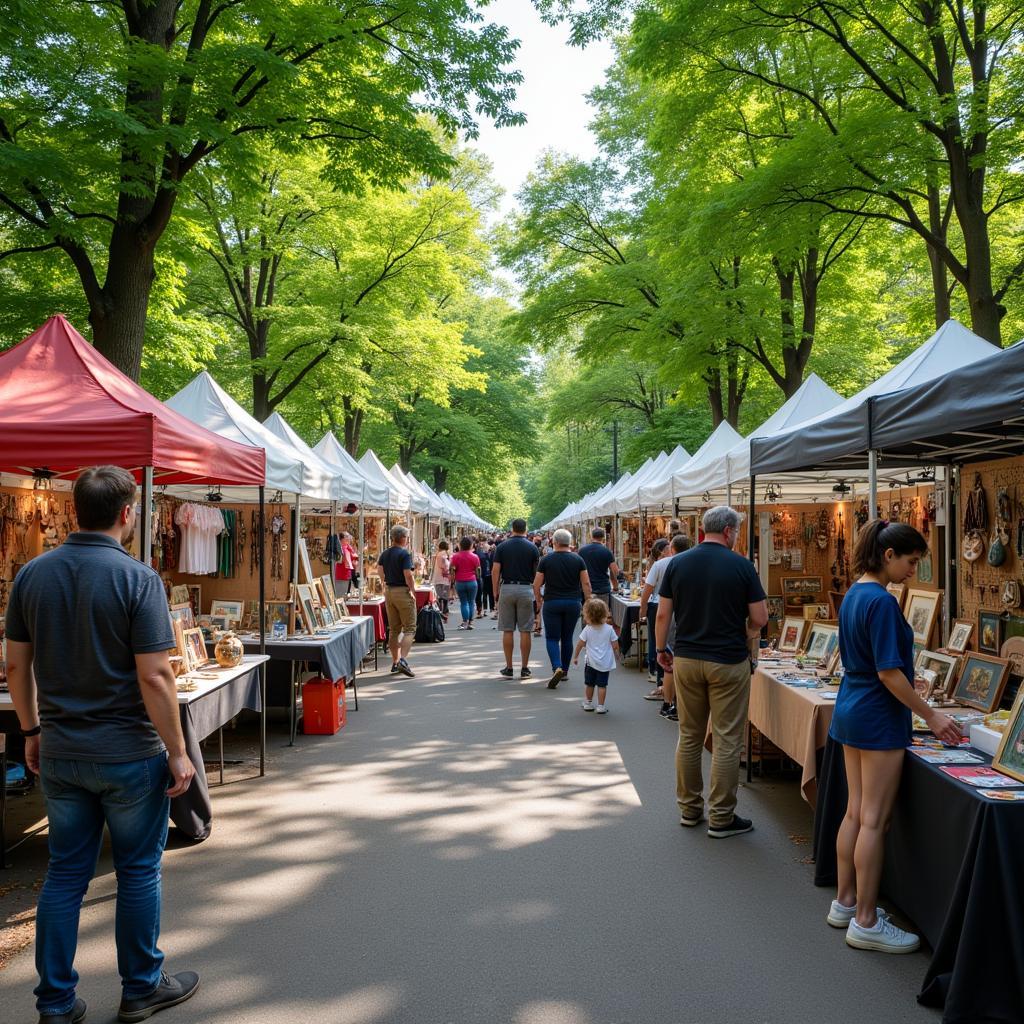Unveiling the Vibrant World of Pinturas Arte Colombiano
Colombia, a land of vibrant culture and breathtaking landscapes, boasts a rich artistic heritage. Among its many treasures, “Pinturas Arte Colombiano” stands out, captivating art enthusiasts worldwide. This term, translating to “Colombian art paintings” in English, encompasses a diverse range of styles, techniques, and themes that reflect the country’s captivating history, vibrant culture, and the unique perspectives of its people.
Exploring the Rich Tapestry of Colombian Art
From the pre-Columbian era to contemporary movements, Colombian art has continuously evolved, mirroring the nation’s dynamic journey. Indigenous communities, Spanish colonialism, independence struggles, and the complexities of modern society have all left their mark on the country’s artistic landscape.
Pre-Columbian Influences: Echoes of Ancient Civilizations
Long before the arrival of Europeans, indigenous cultures like the Muisca, Tairona, and Calima thrived in Colombia, leaving behind exquisite examples of pottery, goldwork, and textiles. These artifacts, adorned with intricate patterns and symbolic imagery, provide a glimpse into their cosmology, rituals, and daily life. The influence of these ancient civilizations continues to inspire contemporary Colombian artists, who draw upon these traditional motifs and techniques to explore themes of identity, heritage, and the relationship between humanity and nature.
The Colonial Period: A Fusion of European and Indigenous Traditions
The Spanish conquest in the 16th century ushered in a new era in Colombian art. European artistic conventions, particularly those of the Renaissance and Baroque periods, were introduced and blended with existing indigenous traditions, resulting in a unique hybrid style. Religious art flourished, with depictions of saints, biblical scenes, and the Virgin Mary becoming prevalent.
However, these religious themes were often infused with local elements, such as indigenous flora and fauna, subtly challenging the imposed European aesthetic and reflecting a nascent sense of Colombian identity. Portraiture also gained prominence during this period, documenting the elite class and reflecting the social hierarchy of the time.
The Rise of Costumbrismo: Capturing the Essence of Everyday Life
The 19th century witnessed the emergence of Costumbrismo, a genre that focused on depicting the customs, traditions, and daily life of ordinary Colombians. Artists like Ramón Torres Méndez and Epifanio Garay sought to capture the essence of Colombian society, often with a touch of humor and social commentary.
These paintings offer valuable insights into the social customs, clothing, architecture, and daily activities of the time, providing a window into Colombia’s past. This focus on local themes and identities marked a departure from the European artistic dominance, paving the way for the development of a distinct Colombian artistic voice.
Modern and Contemporary Colombian Art: A Global Presence
The 20th and 21st centuries witnessed a flourishing of artistic expression in Colombia. Artists began to experiment with modernist movements such as Impressionism, Cubism, and Surrealism, adapting these global trends to reflect Colombian experiences and realities. Figures like Fernando Botero, with his signature voluptuous figures, and Omar Rayo, known for his geometric abstractions, gained international recognition, firmly placing Colombian art on the global map.
Contemporary Colombian art continues to push boundaries, tackling themes of violence, conflict, peace, identity, and social injustice. Artists like Doris Salcedo, known for her poignant installations addressing political violence, and Óscar Muñoz, whose ephemeral works explore memory and loss, have earned critical acclaim for their powerful and thought-provoking art.
Conclusion
“Pinturas arte colombiano” offers a captivating journey through Colombia’s rich history, cultural diversity, and artistic evolution. From the intricate designs of pre-Columbian artifacts to the bold statements of contemporary art, Colombian paintings provide a unique lens through which to understand this captivating nation. As Colombian artists continue to captivate the world with their creativity and innovation, “pinturas arte colombiano” remains a testament to the enduring power of art to reflect, challenge, and inspire.



